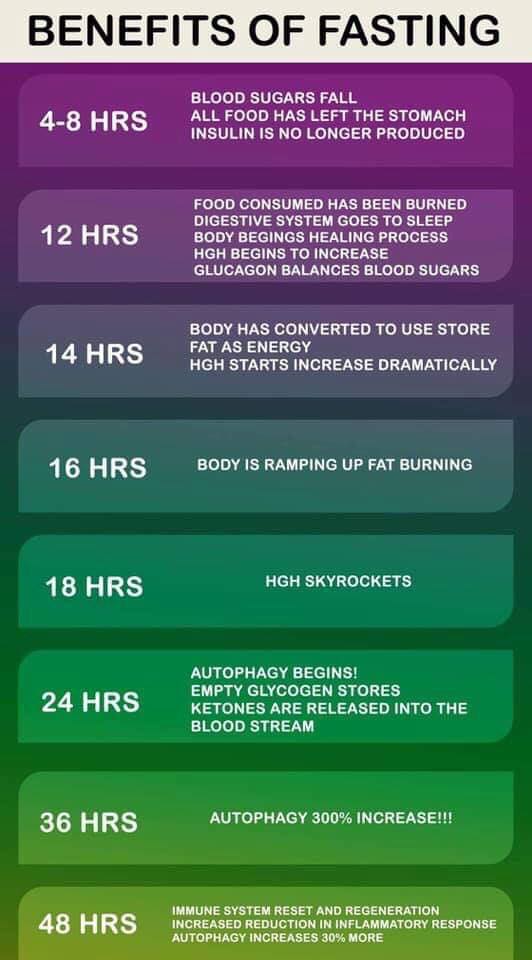You may have heard about intermittent fasting and wondered if it's something that could work for you, and you may also have wondered if there's any real science behind it, or if it's just another dieting gimmick. Intermittent fasting generally involves eating patterns where you go back and forth between periods of fasting and eating.
These cycles can have different pattern durations, such as abstaining from eating for 16 hours before allowing yourself a meal and snack to cover the remaining eight hours. Some intermittent fasting patterns are also set up with 24 hours of fasting before a nutritious meal is consumed. Science tells us that intermittent fasting actually can have some very powerful benefits for the body and for the brain, some of which are described below.
Changes to cell function, hormones, and genes
When you fast for a period of time, some very significant changes occur in your body. One of the first things that occurs is that hormone levels are altered, so that body fat which has been stored becomes more accessible. Cellular repair processes are also undertaken to a greater extent, including the removal of waste material from body cells.
Insulin levels drop significantly from the blood, which further facilitates the fat-burning process. There is also usually an increase in human growth hormone, which further facilitates muscle gain and fat-burning, and which provides additional benefits. Scientists have also discovered that beneficial changes occur to genes and molecules which are associated with disease protection and longevity.
Reduction of inflammation
Studies have shown that intermittent fasting can be very effective in fighting inflammation, which is a known trigger for many types of common disease. When inflammation is reduced around the body, it will always result in a healthier, more pain-free existence for the practitioner.
Heart health
Most people are very well aware that the number one cause of death in the world is heart disease, and that there are certain risk factors associated with developing heart disease. Intermittent fasting has been proven to reduce some of these risk factors associated with heart disease, including LDL cholesterol, blood triglycerides, high blood pressure, blood sugar levels, and inflammatory markers. While many of these benefits have been observed primarily in animal studies, it is widely anticipated that the same benefits will also accrue to human subjects, when further research becomes available.
Weight reduction and loss of belly fat
One of the primary reasons why most people undertake intermittent fasting is simply to lose weight, and since you do eat fewer meals on a pattern like this, you should generally be successful. The only time this won't work, is if you compensate for the reduction in calories by eating bigger meals during your periods of eating. Intermittent fasting has been shown to enhance hormone function which then facilitates weight loss.
During intermittent fasting, you will experience higher growth hormone levels, lower insulin levels, and increased levels of norepinephrine, all of which work together to facilitate the breakdown of body fat, and use it as an energy source. While all this is going on, your metabolic rate will increase as well, somewhere between 3% and 14%, which will help you burn even more calories. This amounts to a double-barreled benefit you achieve through intermittent fasting: your metabolism increases, thereby burning more calories, and you reduce your food intake, which also lowers your caloric intake.

1 comment
This is very informative and interesting. I’ve just begun intermittent fasting on my own, and this knowledge helps me to better understand it’s benefits.